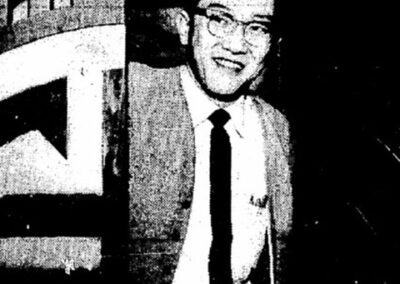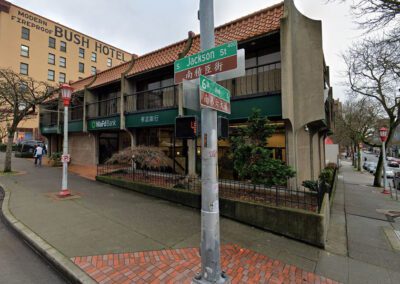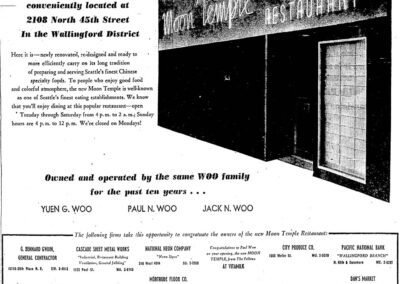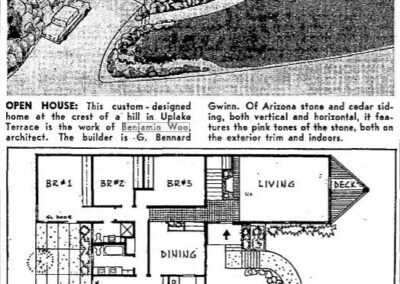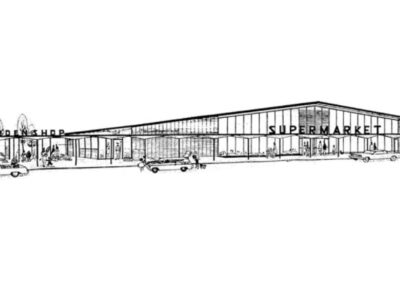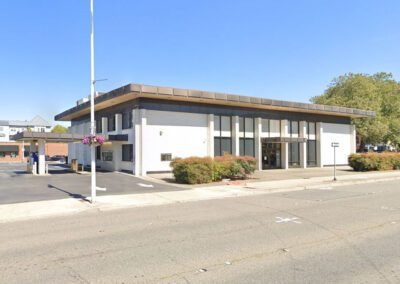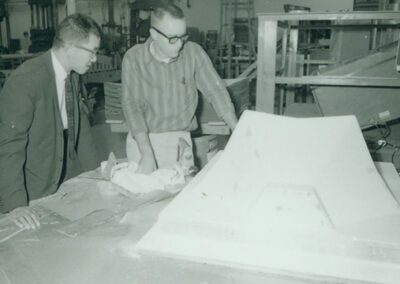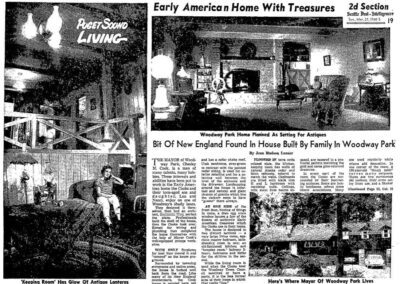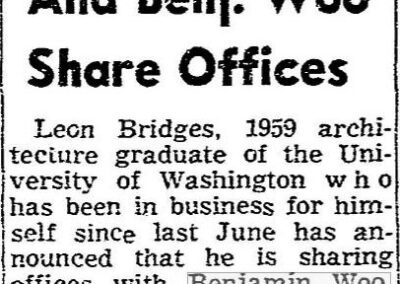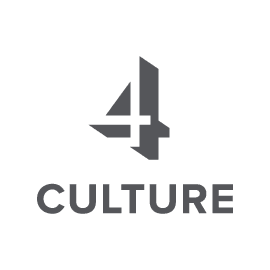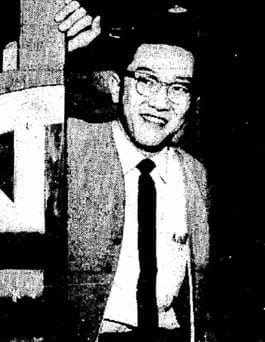
Woo, Benjamin
After working as a draftsman for several architectural and engineering firms including Ray Heath and naval architect George Nickum, Woo opened his own firm in 1955. Known projects during the early part of his career include the H & K Foods building (1958) on Beacon Hill and a custom spec home for builder G. Bennard Gwinn in the Uplake Terrace neighborhood in 1959 which was featured in the Seattle Times.
In 1959, Woo formed a partnership with Seth Jackson and Donald M. Edwards. Known as Woo, Jackson & Edwards (1959-1963) the firm specialized in shopping centers. Projects include the Town & Country Shopping Center (1959) in Bellingham, Issaquah Center Shopping Center (1961), B & V Village Shopping Center (1962) in Redmond, Fuller’s Market Basket (1963) in Chehalis, and the Sunset Plaza Center (1963) at Factoria.
Other projects included the First Presbyterian Church (1960) in Renton, the Jantun Apartments (1960), a five-unit apartment complex for Paul Woo at 2410 13th Ave S. (1961), and three model homes for the Leawood Development (1961) near Lake Sammamish.
For unknown reasons in 1964 the partnership dissolved and Woo opened his own firm, sharing office space with architect Leon Bridges. During this time, he designed First Federal Savings & Loan Bank, Renton (1967-1968), Sunset Plaza Veterinary Clinic (1964) in Bellevue, the first home of the Wing Luke Museum (1967), the Dr. L.C. Hoover House (1968) in Edmonds, and a remodel of the Tai Tung Restaurant (1968) in Seattle’s Chinatown/International District.
In 1969, Gerald A. Park joined Woo in a new partnership. Together they designed a variety of projects scattered across the Seattle region including the King County Fairgrounds (1970) in Enumclaw, several improvements to Seattle Community College (1969-1970), the Kawabe Memorial House Senior Apartments (1971), the United Savings & Loan Bank Headquarters building (1973) in Seattle’s Chinatown/International District, the United Savings & Loan Association – Jackson Park Branch (1975), and completed an extensive remodel of the Renton Highlands Shopping Center (1979).
Throughout his career, Woo was heavily involved in a variety of social and civic organizations, particularly with the Chinese American community. He served on the Seattle Human Rights Commission (1965-1968) and was one of the founders. He was also a member of the Chong Wa Benevolent Association Board (1965), the governing body of Seattle’s Chinese community, and was founder and President of the Chinese Community Service Organization (early 1960s). In 1971 Woo served as President of the Wing Luke Museum (1971) and was a board member of China Club of Seattle. He was also a member of the Jackson Street Community Council and Seattle Urban Renewal Enterprises, all while being an active member of the Chinatown Chamber of Commerce. He also served as President of the Puget Sound Mycological Society (1964). From 1983 to 1989 Woo served on the Seattle Chinatown-International District Preservation & Development Authority board.
Woo was also responsible for providing the designs for the street lanterns that helped give the Seattle Chinatown/International District its character. Sponsored by the Chong Wa Benevolent Association, 119 lanterns were installed in 1962.
Other activities included being Chairman of Seafair festivities (1964), serving as senior vice commander of the Cathay Post of the American Legion, and becoming the first Asian American to hold the office of president of the Seattle Chapter of the AIA Seattle in 1982.
Woo retired from his architectural practice in 1990 and became the director of the King County Department of Construction & Facilities Management (1990-1993). He died in Seattle on February 8, 2008.
United Savings & Loan Bank – International District Branch | Seattle
Built 1973 | Source: Google StreetView
Advertisement for Moon Temple Restaurant | Seattle
Built 1958 | Source: Seattle Post-Intelligencer, May 16, 1958
Benjamin Woo Examining Lanterns he Designed for the International District | Seattle
Built 1962 | Source: Woo Family
Chesley M. Cook Residence | Woodway Park
Built 1960 | Source: Seattle Post Intelligencer, March 27, 1960
